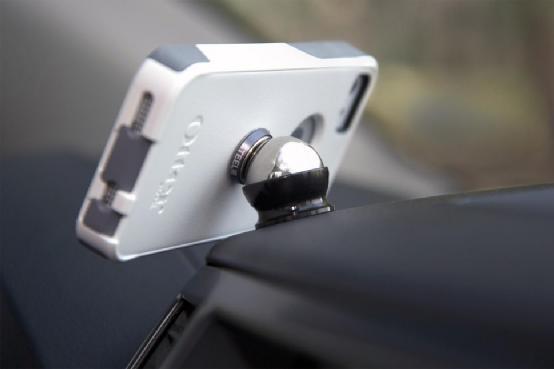Will Magnets Affect The Phone Or Hard Disk?
Many people are paranoid about magnets near electronic products. They worry that the screen will be deformed, the stored files will disappear, and the smart phone will hang up forever. Is the fear of people worrying? Is there any reason? Can magnets pose a terrible threat to electronic products? Matt Newby explains that such concerns may come from previous electronic devices, such as CRT monitors and televisions, which are susceptible to magnetic fields. When the strong magnet is near the product, it will distort the image. Modern televisions and displays will not be affected by this. " The most modern electronic products, such as smart phones, will not be affected by small magnets. But is that true?
The influence of magnets on smart phones
Matt said, "the magnets we encounter in our daily life and even the magnetic strong magnets in the market will not adversely affect smart phones. In fact, there are a large number of very small magnets inside the smart phone, which perform very important functions. For example, Apple Watch uses a magnetic induction wireless charging system. However, there are still some factors to consider before making magnet contact with smart phone. Matt warned that the magnetic field can temporarily interfere with the digital compass and magnetometer in smart phones, which is more serious than people think.
The engineers used iPhone to demonstrate the effect of magnets on smart phones' internal sensors.

Michael Paul, an engineer, explained, "the problem we found was that the magnets close to it would affect the magnetic sensors in the cell phone, and the number of digital compass would be incorrect." What's worse, if the strong magnet is next to the cell phone, the iron components inside the cell phone will be magnetized and become weak magnets, which will make it difficult to correct the compass.
Some users may think that does not matter, because they will not use compass applications, but that does not mean that other applications do not rely on compass. For example, Google maps use the compass to determine the direction of the phone, and many games use the compass to "calculate" the direction of the user.
Apple takes into account this factor in the design of cell phone protective shell and accessories. Apple said in its guide to the design of protective shells, "Apple recommends avoiding the use of magnetic and metallic materials in protective shells." Manufacturers must ensure that the built in magnetic compass is not affected by the enclosure. IPhone 6 Plus is specially taken care of because magnets can cause potential problems for cameras with optical anti shake and auto focus functions.
The magnet may not completely hang up the phone, but it will cause some important functions to be in disorder. So why should we take this risk?
Does a hard disk be affected by a magnet?
The idea that magnets can erase data from hard drives is very popular, especially in television programs. For example, in the "fatal poison", Walter White tried to use large electromagnets to destroy the evidence in the hard disk. Is the fear that the magnet removes data from the hard disk is also out of date?
Matt pointed out that "data recorded by magnetic materials can be eliminated by magnets, including cassette tapes, floppy disks, video tapes and credit cards. If data are recorded by magnetic materials, they may be destroyed by magnets. "
Matt explained, "theoretically, if the surface of the hard disk is directly touched, the magnetically strong enough magnet can damage the data on the hard disk. However, neodymium magnet is used in the hard disk to operate the read / write arm and record data, so the hard disk will not be affected by the usual specification magnet. For example, sticking the magnet to the outside of the PC chassis will not have any effect on the hard disk. "
USB and SSDs users need not worry. Michael said, "USB and SSDs will not be affected by strong static magnetic field."
The engineers tried to use neodymium magnets to destroy the data in the hard disk, but they disappointed them. They put large magnets on the side of the hard disk until they could hear the mechanical friction, indicating that the magnet had caused the internal parts of the hard disk to bend.
Nevertheless, the files stored on the hard disk are still one hundred percent intact.
With a larger magnet acting on the closed hard disk, the hard disk is opened, and the files are completely unaffected. Obviously, most enterprises use physical methods to destroy the hard disk, because it is not reliable to delete data by magnets.
Do people need to worry about magnets?
At home, we are surrounded by magnets - magnets in every computer, loudspeaker, television, engine, and smart phone. Modern life can not be separated from magnets.
Pre: How Superconductors Are Found
Next: New Discovery: Magnet Can Be Used As Refrigerant







